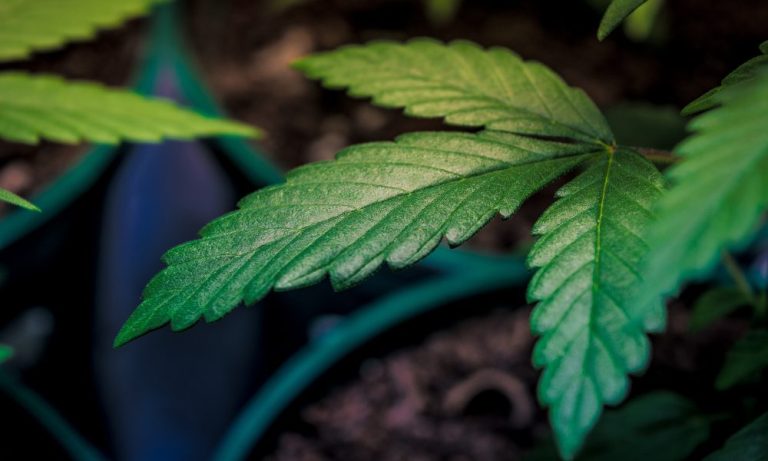“As regulators and stakeholders sit down to hash out the framework for legalizing marijuana nationally, they must not pull up a chair for smelly old Joe Camel.”
By Shaleen Title, Parabola Center for Law and Policy
Next week, state marijuana officials from around the U.S. will gather in Annapolis, Maryland for one of the year’s most consequential—yet lowest-profile—meetings in all of drug policy.
The annual “external stakeholders” conference organized by the Cannabis Regulators Association (CANNRA) is essentially the big, national, behind-closed-doors meeting between major marijuana associations and the public officials who oversee their industry.
I’m a former member of the Massachusetts Cannabis Control Commission, and there’s nothing inherently nefarious about regulators holding discussions in a private setting. Regulators should be in frequent discussion with licensees and other stakeholders to receive feedback toward more efficient, sensible regulation.
But this being an invite-only discussion, it’s worth asking who’s being included.
For the second year in a row, I was dismayed to learn that the organizers have reserved a coveted spot at the table for the Coalition for Cannabis Policy, Education, and Regulation, or CPEAR.
Lurking behind that bland, perhaps intentionally forgettable name are some of the worst monsters in the history of American capitalism: Altria (formerly Philip Morris) and new member Reynolds American. CPEAR also includes an industry group representing convenience stores—the primary retailers of tobacco products—and alcohol giant Molson Coors, among others.
Reynolds and Altria are the country’s two biggest manufacturers of cigarettes, products that remain the leading cause of cancer in the U.S. and which have killed untold millions of Americans. Most relevant to cannabis regulation, tobacco companies have a long and well-documented history of acting with reckless disregard for public health, including by using manipulative and aggressive marketing to push the use of their products by teens and low-income communities around the world.
As regulators and stakeholders sit down to hash out the framework for legalizing marijuana nationally, they must not pull up a chair for smelly old Joe Camel.https://t.co/2adxRHdCvQ
— Shaleen Title (@shaleentitle) June 23, 2023
They have also continuously attempted to stave off accountability, dodge regulation and subvert good-faith policymaking by funding junk science and propping up front groups to advance their interests under other names.
Most recently, tobacco companies have poured money into the vape market, in turn causing an exponential rise in youth tobacco use that experts say is reversing a generation of progress in reducing rates of tobacco consumption—a decline that had been among the most significant factors in driving down the U.S. death rate, thanks to education campaigns and other public health efforts.
In marijuana, public health regulations and the prevention of youth use are not just talking points. They are non-negotiable pillars of every state cannabis regulatory regime that today exists in the United States. Tobacco companies can’t be invited to weaken them with their known playbook of pretend research and manipulation by front groups.
That’s why I cannot in good conscience attend any CANNRA forum, or any invite-only marijuana policy event, that includes such proven bad actors. Marijuana regulators are public servants, and tobacco companies through their actions have told us over and over that they will knowingly act against the public’s interests. We should believe them.
CANNRA’s leadership responded to my objections that the group must be “neutral” and extend invites to all “cannabis industry groups…regardless of their funding.”
But that stance is fundamentally absurd. Should policymakers have to set aside private time with Exxon Mobil and Shell in order to appear “neutral” on the topic of climate science? To the makers of OxyContin on opioid overdose? To Facebook on tech monopolies?
The limited number of spots available at the conference means CANNRA is, by definition, exercising discretion over which groups it invites. The question is, on what basis?
To be clear, tobacco companies are not currently licensed members of the marijuana industry. Far from being legitimate stakeholders, they are prospective profiteers at best.
CANNRA told me they do not “give any attendee any special privileges or platforms, nor do we take sponsorships or donations from any industry based groups.” I believe them and agree it’s important that public officials not engage in corporate favoritism.
But CANNRA is failing to consider that being an attendee at all is a special privilege. By inviting Big Tobacco, the association is extending a decidedly undeserved umbrella of credibility and legitimacy over the deadly, irrelevant, and just plain sleazy tobacco industry. Fairness does not demand we allow every deep-pocketed bystander to shout themselves into the conversation. CANNRA must realize that, for cigarette companies, simply being acknowledged and debated is a big win.
Altria, for its part, has pledged it is “moving beyond smoking.” Good for them—maybe a pivot into cannabis would indeed diversify Altria’s revenue to include less lethal sources of cash. But Altria’s desire to make up its losses in tobacco is Altria’s problem, not CANNRA’s, and certainly not a basis for good drug policy that serves the public.
As regulators and stakeholders sit down to hash out the framework for legalizing marijuana nationally, they must not pull up a chair for smelly old Joe Camel. We’ve seen that movie before, and we know how it ends.
Shaleen Title is a former top cannabis regulator for the state of Massachusetts who currently serves as founder and director of Parabola Center for Law and Policy, a nonprofit drug policy think tank.
